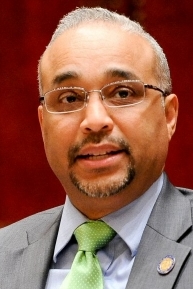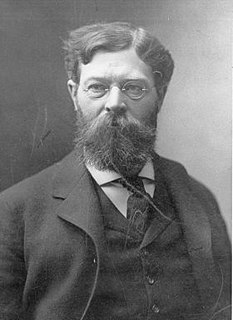A Quote by Greg Koukl
Almost everyone agrees the world is not the way it ought to be. It's called the problem of evil.
Related Quotes
In matter-ism (materialism), there can be nothing wrong with the world since there is no right way for the world to be in the first place. Everything is just matter in motion and that's that. In Mind-ism (monism) there's a different route to the same problem. There cannot be a problem of evil, even in principle, since in Mind-ism even morality is maya; illusion. In neither story, then (if we're to be consistent with their principles), can the issue of evil be raised. But in real life the problem comes up all the time. That's the difficulty.
I was pulled this way and that for longer than I can remember. And my problem was that I always tried to go in everyone's way but my own. I have also been called one thing and then another while no one really wished to hear what I called myself. So after years of trying to adopt the opinions of others I finally rebelled. I am an invisible man.
Evil is thus a kind of parasite on goodness. If there were no good by which to measure things, evil could not exist. Men sometimes forget this, and say, there is so much evil in the world that there cannot be a God. They are forgetting that, if there were no God, they would have no way of distinguishing evil from goodness. The very concept of evil admits and recognizes a Standard, a Whole, a Rule, an Order. Nobody would say that his automobile was out of order if he did not have a conception of how an automobile ought to run.
Whether it's the Axis of Evil, or the evils of eating meat, it is a concept that has all but lost the impact it once had, because everyone thinks different things in this world are evil. PETA thinks what we do to animals is evil, but I think their overzealous approach is evil. Evil, in more ways than one, is comparable to the truth: definitions vary from one individual to the next.
Thus, then, stands the case. It is good, that authors should be remunerated; and the least exceptionable way of remunerating them is by a monopoly. Yet monopoly is an evil. For the sake of the good we must submit to the evil; but the evil ought not to last a day longer than is necessary for the purpose of securing the good.
The world we live in is a world of mingled good and evil. Whether it is chiefly good or chiefly bad depends on how we take it. To look at the world in such a way as to emphasize the evil is the art of pessimism. To look at it in such a way as to bring out the good, and throw the evil into the background, is the art of optimism. The facts are the same in either case. It is simply a question of perspective and emphasis.
I think we are only going to get it by standing up and voting our values, understanding that the lesser evil doesn't solve the problem. It just prolongs the problem and it paves the way to the greater evil. That the policies of the Clintons, the Wall Street deregulation and NAFTA, created the economic misery that becomes very fertile territory for demagogues like Donald Trump.
Almost everything I do when I approach an operational problem comes from the time I've been in space. It's a way of organizing your thoughts. We use problem-solving; what we call "what-if-ing." What if this happened? What would we do? We go over plan B, C, D, E, F, and whatever else, depending on the criticality of what we're doing. This kind of thing can be applied almost everywhere, even at home.


































